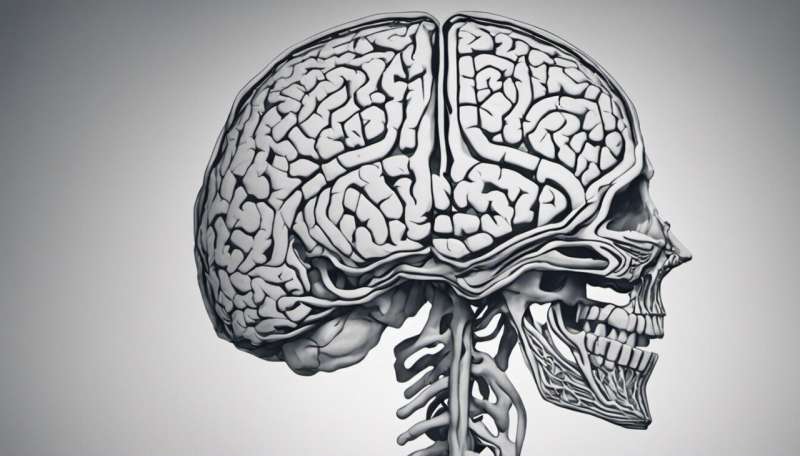Credit: AI-generated image (disclaimer)
Just like the rest of you, your brain needs physical exercise, so take a break from Sudoku and master some dance moves instead.
Curtin University's Dr Andrew Lavender says being physically active is vital to maintaining your brain's long-term health.
"Exercise of any kind is important for brain health," Dr Lavender says.
"Any physical exercise you do is coordinated by your motor cortex, which is the part of the brain that initiates movement, and that movement is then fine-tuned by the cerebellum, and all those neural pathways are being used when you exercise.
"Regular aerobic exercise helps to keep the brain healthy, as well as the rest of your body."
Even doing something as simple as bouncing a ball or standing on one leg keeps your brain active and engaged, which becomes vital as you age.
"Your brain develops more and more neural connections and continues to grow into adulthood," Dr Lavender says.
"Once you hit around your mid-40s, your brain volume declines at about five per cent per decade.
"By the time you get to your 80s and 90s, your signalling pathways are quite reduced, and severe loss of volume of the cerebrum is associated with some common disorders, like Alzheimer's."
Jump, everybody, jump
You can contribute to the continued healthy functioning of your brain by staying physically active: any kind of coordinated movement requires your brain to keep its signalling pathways firing.
"The old 'move it or lose it' is applicable here," Dr Lavender says.
"As people get older, we know that some cortical functions are reduced, and we find that people who are healthier and fitter and do more exercise tend to ward off those age-related decreases in function."
Learning a new physical skill is also beneficial, so challenge yourself by learning a new skill, like juggling.
As you struggle to gain coordination, your brain must "rewire" itself through learning the movement, and coordinate your muscles to do it.
"When you practise a skill, you get neural signalling to those muscles in a more and more coordinated way," Dr Lavender says.
So take a regular break from reaching for crossword answers to hit the gym.
And after your physical workout, you can return to your crossword, or phone a friend or read a great online science magazine.
"Doing cognitive functions, like doing Sudoku and having discussions, are also important for maintaining brain health, well into old age," Dr Lavender says.
Provided by Science Network WA
This article first appeared on ScienceNetwork Western Australia a science news website based at Scitech.
























